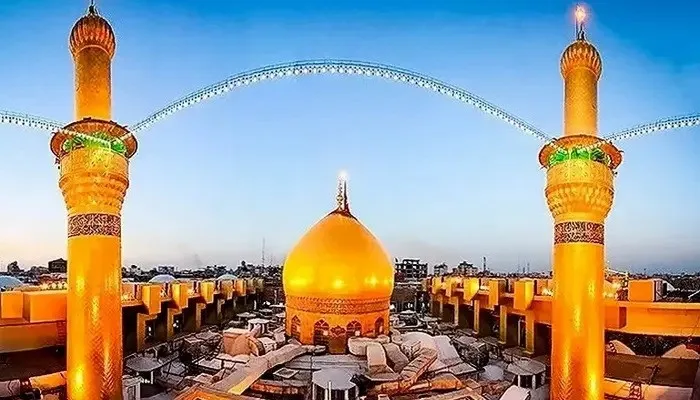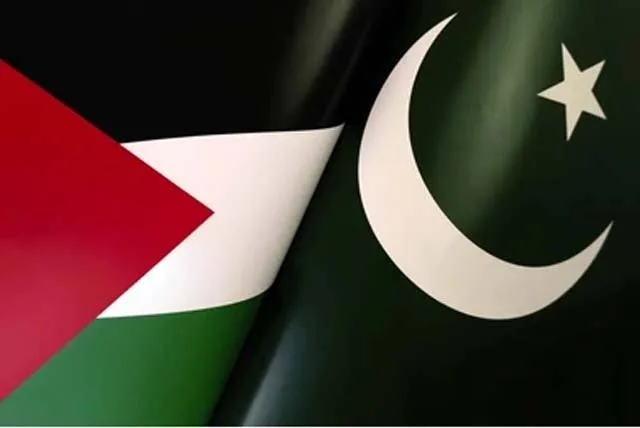
Hazrat Hussain ibn Ali (Radi Allahu Tala Anhu), the grandson of Prophet Muhammad (Peace Be Upon Him), is one of the most revered figures in Islamic history. His life, legacy, and martyrdom hold profound significance for Muslims worldwide. He is remembered not only for his noble lineage but also for his unwavering commitment to justice, truth, and the principles of Islam. This blog delves into the life of Hazrat Hussain, his contributions to Islam, and the timeless lessons his story imparts.
Early Life and Family Background
Hazrat Hussain (Radi Allahu Tala Anhu) was born on the 5th of Sha’ban, 4 AH (approximately January 8, 626 CE), in the holy city of Medina. He was the younger son of Hazrat Ali ibn Abi Talib (Radi Allahu Tala Anhu) and Hazrat Fatimah (Radi Allahu Tala Anha), the beloved daughter of Prophet Muhammad (PBUH). His older brother was Hazrat Hasan (Radi Allahu Tala Anhu), and together, they were known as “the Leaders of the Youth of Paradise” (Sayyid al-Shabab al-Jannah), a title bestowed upon them by the Prophet (PBUH).
Hazrat Hussain grew up in the household of the Prophet (PBUH), surrounded by love, guidance, and the teachings of Islam. His early years were marked by the profound influence of his grandfather, who often expressed his deep affection for Hussain. It is reported that the Prophet (PBUH) said, “Hussain is from me, and I am from Hussain,” highlighting the inseparable bond between them.
The Caliphate Period and Political Turmoil
After the passing of Prophet Muhammad (PBUH), the Muslim community faced significant political and social challenges. Hazrat Hussain witnessed the reigns of the Rashidun Caliphs—Abu Bakr (Radi Allahu Tala Anhu), Umar (Radi Allahu Tala Anhu), Uthman (Radi Allahu Tala Anhu), and his father, Ali (Radi Allahu Tala Anhu). During this time, he remained a steadfast supporter of justice and the principles of Islam.
Following the martyrdom of Hazrat Ali (Radi Allahu Tala Anhu) in 661 CE, Hazrat Hasan (Radi Allahu Tala Anhu) briefly assumed the caliphate but later relinquished it to Muawiyah ibn Abi Sufyan to avoid further bloodshed among Muslims. This period marked the beginning of the Umayyad dynasty, which would later play a pivotal role in the events leading to Hazrat Hussain’s martyrdom.
The Stand Against Tyranny: The Event of Karbala
The most defining moment in Hazrat Hussain’s life was his stand against the tyranny of Yazid ibn Muawiyah, the Umayyad caliph. Yazid’s rule was characterized by corruption, oppression, and a blatant disregard for Islamic principles. When Yazid demanded allegiance from Hazrat Hussain, he refused, stating, “A person like me cannot pledge allegiance to a person like him.”
Hazrat Hussain’s refusal was not an act of rebellion but a principled stand to uphold the values of Islam. He believed that pledging allegiance to Yazid would legitimize his unjust rule and undermine the teachings of the Prophet (PBUH). With a small group of family members and loyal companions, Hazrat Hussain left Medina and embarked on a journey to Kufa, where he had received invitations from its people promising support.
However, upon reaching Karbala (in present-day Iraq), Hazrat Hussain and his companions were confronted by a large army sent by Yazid. Despite being vastly outnumbered and deprived of water for days, Hazrat Hussain remained resolute in his mission. On the 10th of Muharram, 61 AH (October 10, 680 CE), the Battle of Karbala took place, culminating in the martyrdom of Hazrat Hussain and his companions.
The Story of Jalaluddin Rumi: A Journey of Love and Spirituality
The Martyrdom of Hazrat Hussain
The martyrdom of Hazrat Hussain is one of the most tragic and significant events in Islamic history. He was brutally killed, and his family, including women and children, were taken captive. Despite the immense suffering, Hazrat Hussain’s sacrifice became a symbol of resistance against oppression and a testament to the power of standing up for truth and justice.
His final words, “If you do not have any religion, at least be free in your present life,” resonate as a call to uphold human dignity and freedom. The tragedy of Karbala is commemorated annually by Muslims, particularly during the month of Muharram, as a reminder of the values Hazrat Hussain stood for.
Contributions to Islam
Hazrat Hussain’s contributions to Islam extend far beyond his martyrdom. His life and actions serve as a timeless example of courage, integrity, and devotion to Allah. Here are some key aspects of his legacy:
- Upholding Justice: Hazrat Hussain’s refusal to submit to Yazid’s unjust rule exemplifies the importance of standing up for justice, even in the face of overwhelming odds. His sacrifice reminds Muslims of the duty to resist oppression and tyranny.
- Preserving the Teachings of Islam: By refusing to compromise on Islamic principles, Hazrat Hussain ensured that the true spirit of Islam remained intact. His stand at Karbala serves as a powerful reminder of the importance of adhering to the teachings of the Prophet (PBUH).
- Inspiring Future Generations: Hazrat Hussain’s martyrdom has inspired countless individuals throughout history to fight for justice and equality. His story continues to motivate people to uphold moral and ethical values in their lives.
- Strengthening the Concept of Sacrifice: The event of Karbala highlights the significance of sacrifice for a greater cause. Hazrat Hussain’s willingness to give up his life for the sake of truth and justice is a profound lesson for all humanity.
Lessons from Hazrat Hussain’s Life
The life of Hazrat Hussain (Radi Allahu Tala Anhu) offers numerous lessons for Muslims and non-Muslims alike:
- Courage in the Face of Adversity: Hazrat Hussain’s unwavering courage in the face of immense challenges teaches us to remain steadfast in our principles.
- The Importance of Truth: His refusal to compromise on truth, even at the cost of his life, underscores the value of honesty and integrity.
- Compassion and Humanity: Despite the hardships he faced, Hazrat Hussain showed immense compassion towards his family and companions, reminding us of the importance of empathy and kindness.
- Standing Against Injustice: His stand at Karbala serves as a powerful reminder of the duty to oppose injustice and oppression in all its forms.
Conclusion
Hazrat Hussain (Radi Allahu Tala Anhu) remains a towering figure in Islamic history, revered for his unwavering commitment to justice, truth, and the principles of Islam. His life and martyrdom continue to inspire millions around the world, serving as a beacon of hope and resilience. As we reflect on his legacy, let us strive to embody the values he stood for and work towards creating a world rooted in justice, compassion, and righteousness.
In the words of Allama Iqbal, the renowned poet and philosopher, “The lesson of truth, justice, and courage taught by Hussain will keep the light of Islam alive forever.” Hazrat Hussain’s sacrifice is not just a historical event but a timeless call to uphold the highest ideals of humanity.
Follow Daynews on Google News, Instagram, YouTube, Facebook,Whats App, and TikTok for latest updates
















